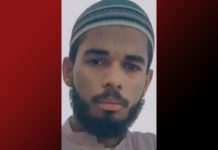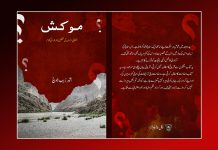By: Banadi Baloch
It all began on July 27, when the Baloch Yakjehti Committee (BYC) began preparations for a grand national gathering in Gwadar, titled “Baloch Raaji Muchi.” From Quetta to Karachi, Kalat to Makran, and from villages to cities, Baloch people actively participated in the event. They engaged in a wide range of activities including distributing pamphlets, conducting corner meetings, wall chalking, and running social media campaigns to mobilize support and raise awareness.
For the first time, people worked with such diligence for an organization, driven not by the greed of votes or self-interest. For the first time, they were fully aware of their rights and conscious of their collective power. United as Baloch, they stood together to defend their people, land, and resources, free from the influence of parliamentary parties. It was democracy in its purest form—a government by the people, for the people, and of the people.
That evening, social media buzzed with reports that Gwadar had been sealed off, with entry strictly prohibited for anyone except the locals. Baloch people from other regions were treated as though they were crossing into a foreign land as if they were attempting to enter Gwadar illegally. The atmosphere resembled that of a border checkpoint between two countries. Despite these measures, the people were fully prepared and determined for the gathering.
On that evening, alarming news broke that the caravan from Quetta heading toward Gwadar had been ambushed by military personnel. Many young boys were injured, and tragically, two of them lost their lives on the spot. Another report followed, stating that at Makran Zero Point in Talar, a young boy was also killed by the Pakistani army. The situation grew increasingly tense as the violence escalated, with the oppressive actions deepening the sorrow and resolve of the people.
On July 28, as the Baloch Yakjehti Committee initiated its gathering as planned, the situation took a dire turn. Thousands of military personnel were deployed with the clear intent to crush the assembly, resorting this time to direct fire on the crowd. Many young boys were injured, and two of them were critically wounded. By evening, both succumbed to their injuries, and their bodies were seized by the FC (Frontier Corps). Amid this chaos and sorrow, the atmosphere was charged with tension and grief, marking yet another tragic chapter in the struggle.
During the movement, the Baloch Yakjehti Committee (BYC) declared a sit-in, demanding the return of the bodies of the deceased before they would disperse. On July 29, the situation escalated further when the army personnel set fire to the tents, destroying everything at the sit-in to scatter and intimidate the protesters. They deployed baton charges and threw tear gas into the crowd, causing chaos. Amid the turmoil, young Baloch human rights activist Sammi Deen lost consciousness due to the tear gas.
Gwadar was completely sealed off under a curfew proclamation, with no one allowed entry. The curfew led to a total blackout of internet, suspension of electricity and water services, and blocked roads. Despite these severe measures, the people of Gwadar remained resolute, vowing not to end the sit-in. For ten days, the BYC leadership continued their protest by conducting seminars and rallies, addressing the critical question of why Gwadar had been chosen for the national gathering. Participation in the sit-in grew steadily as people united to voice their concerns.
Gradually, the sit-in began to wind down as negotiations between the BYC and Gwadar’s administration progressed over the course of a week. Despite the administration’s attempts to undermine the talks, the BYC remained steadfast in its demands. They insisted on the release of protesters arrested during the national gathering, the quashing of false FIRs against BYC leadership, the filing of an FIR against FC personnel for firing on the gathering, the restoration of internet services, the reopening of roads, and a commitment not to disrupt future BYC protests. Ultimately, the administration agreed to the BYC’s charter of demands, leading to the conclusion of the sit-in.
Gradually, the protesters and BYC members who had been arrested and disappeared during the national gathering were released. The BYC extended its sit-in to await the scheduling of trials for those still under legal proceedings. They insisted that the sit-in would continue until the charges against them were clarified and addressed. On the final night, the detained individuals were brought to the gathering by DPO Najeeb Pandrani, marking a significant step toward fulfilling the BYC’s demands.
What began as a brief gathering was transformed into a ten-day sit-in due to state oppression and brutality. Despite the authorities’ efforts to suppress the voices of the Baloch nation, the people demonstrated their unwavering resolve and refusal to bow down, regardless of the circumstances. Innocent lives were lost simply for attending the peaceful gathering, a deeply saddening reality that the state must reflect upon and address.
Disclaimer: The views and opinions expressed in this article are those of the author and do not necessarily reflect the official policy or position of The Balochistan Post or any of its editors.




























